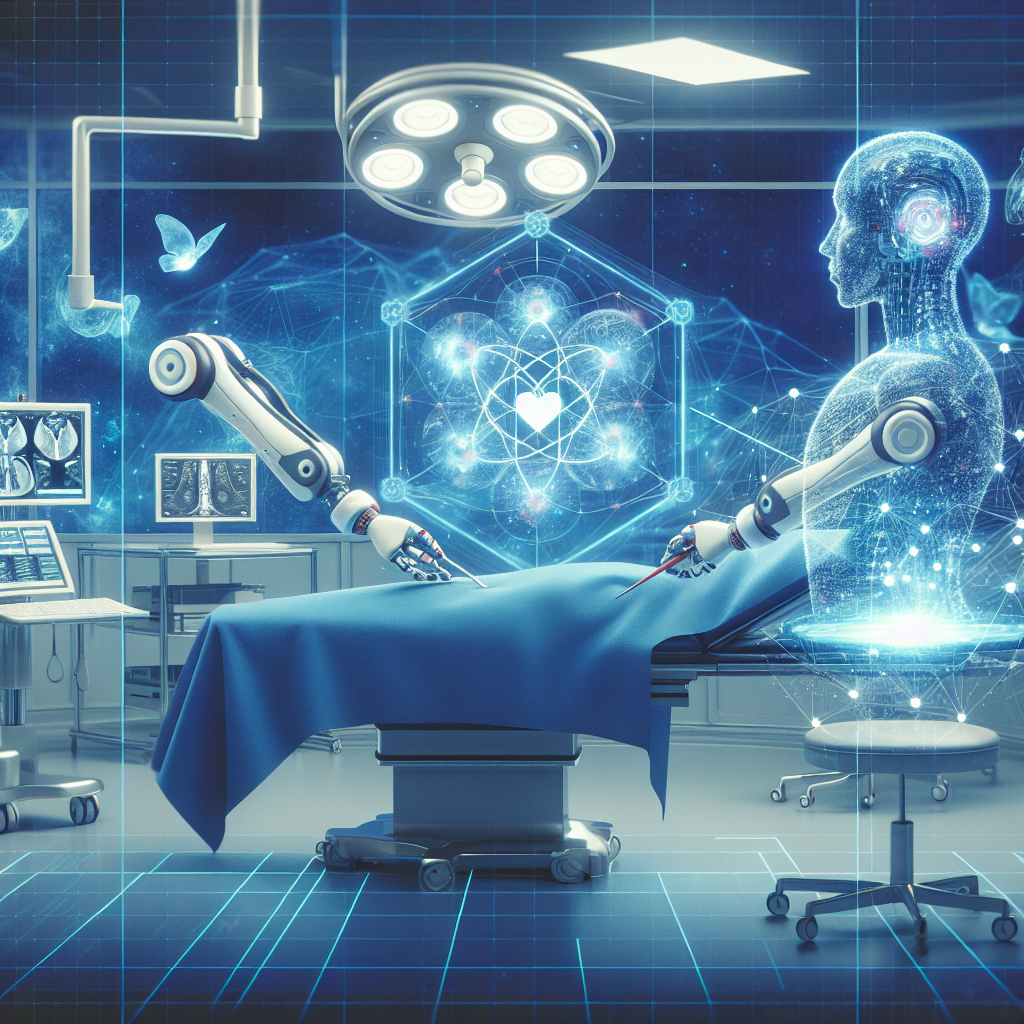Artificial Intelligence (AI) integration is rapidly transforming the healthcare industry, revolutionizing the way healthcare services are delivered and improving patient outcomes. From streamlining administrative tasks to diagnosing diseases more accurately, AI is proving to be a game-changer in the field of healthcare. In this article, we will explore the various ways in which AI is being integrated into healthcare services and the impact it is having on patients, healthcare professionals, and the industry as a whole.
AI Integration in Healthcare Services
1. Diagnostics and Imaging:
One of the most significant applications of AI in healthcare is in diagnostics and imaging. AI algorithms are being used to analyze medical images such as X-rays, MRIs, and CT scans, helping healthcare professionals to detect diseases and abnormalities more accurately and quickly. AI can detect patterns and anomalies in medical images that may not be visible to the human eye, leading to earlier and more accurate diagnoses.
2. Personalized Medicine:
AI is also being used to develop personalized treatment plans for patients based on their individual genetic makeup, lifestyle, and medical history. By analyzing vast amounts of data, AI algorithms can identify patterns and trends that can help healthcare professionals tailor treatments to meet the specific needs of each patient. This approach is leading to more effective and targeted treatments, improving patient outcomes and reducing the risk of adverse reactions.
3. Administrative Tasks:
AI is also streamlining administrative tasks in healthcare, such as scheduling appointments, processing insurance claims, and managing electronic health records. By automating these tasks, healthcare professionals can focus more on patient care and spend less time on paperwork. This not only improves efficiency but also reduces the risk of errors and improves the overall quality of care.
4. Remote Monitoring:
AI-powered devices and wearables are enabling remote monitoring of patients, allowing healthcare professionals to track vital signs, medication adherence, and other health metrics from a distance. This technology is particularly useful for patients with chronic conditions who require regular monitoring but may not be able to visit a healthcare facility frequently. By providing real-time data on patients’ health, AI-powered remote monitoring devices can help healthcare professionals intervene early and prevent complications.
5. Drug Discovery:
AI is also being used in drug discovery and development, helping pharmaceutical companies to identify potential drug candidates more quickly and efficiently. By analyzing vast amounts of data, AI algorithms can predict how a drug will interact with the body, identify potential side effects, and optimize dosage levels. This approach is speeding up the drug discovery process and leading to the development of more effective and targeted treatments.
Impact of AI Integration in Healthcare
The integration of AI into healthcare services is having a profound impact on patients, healthcare professionals, and the industry as a whole. Some of the key benefits of AI integration in healthcare include:
1. Improved Accuracy:
AI algorithms can analyze vast amounts of data quickly and accurately, leading to more precise diagnoses and treatment plans. This can help healthcare professionals to make more informed decisions and improve patient outcomes.
2. Increased Efficiency:
By automating administrative tasks and streamlining processes, AI is improving the efficiency of healthcare services, reducing the time and resources required to deliver care. This allows healthcare professionals to focus more on patient care and less on paperwork.
3. Enhanced Patient Experience:
AI-powered devices and wearables are enabling remote monitoring of patients, allowing them to receive care from the comfort of their own homes. This can improve the patient experience by reducing the need for frequent visits to healthcare facilities and providing real-time feedback on their health.
4. Cost Savings:
AI integration in healthcare can lead to cost savings by reducing the time and resources required to deliver care, improving efficiency, and preventing unnecessary hospitalizations and complications. This can help to lower healthcare costs and make healthcare services more accessible to a wider population.
FAQs about AI Integration in Healthcare
Q: Is AI replacing healthcare professionals?
A: AI is not replacing healthcare professionals but rather complementing their expertise and improving the quality of care. Healthcare professionals will still play a crucial role in diagnosing and treating patients, while AI can assist in data analysis, diagnostics, and treatment planning.
Q: Is AI secure and compliant with patient privacy regulations?
A: AI technologies in healthcare are subject to strict privacy regulations, such as HIPAA in the United States. Healthcare organizations are required to ensure that patient data is secure and protected when using AI technologies, and many AI solutions are designed with encryption and data security measures in place.
Q: Will AI lead to job losses in the healthcare industry?
A: While AI may automate certain tasks and processes in healthcare, it is unlikely to lead to widespread job losses. Instead, AI is expected to create new job opportunities in areas such as data analysis, AI development, and remote monitoring, while allowing healthcare professionals to focus more on patient care.
Q: How can patients benefit from AI integration in healthcare?
A: Patients can benefit from AI integration in healthcare by receiving more accurate diagnoses, personalized treatment plans, and remote monitoring services. AI-powered devices and wearables can also help patients to manage their health more effectively and receive care from the comfort of their own homes.
In conclusion, AI integration is transforming healthcare services by improving accuracy, efficiency, patient experience, and cost savings. By harnessing the power of AI, healthcare professionals can deliver more personalized and targeted care, leading to better patient outcomes and a more sustainable healthcare system. As AI continues to evolve and expand its capabilities, the future of healthcare looks brighter and more promising than ever before.

